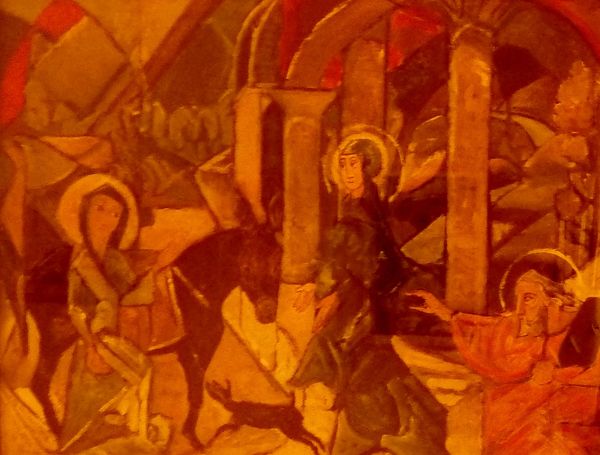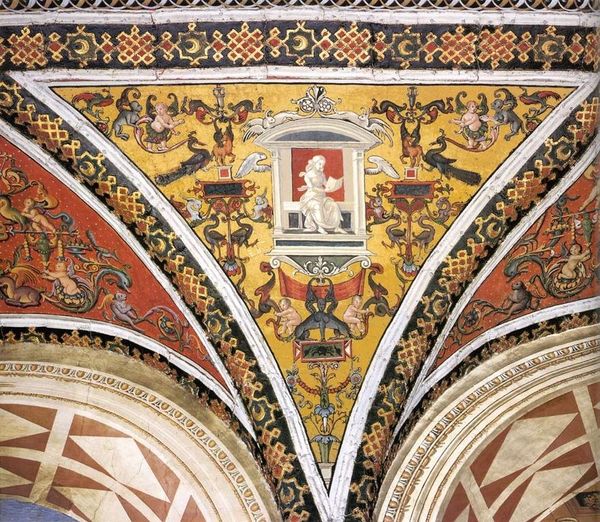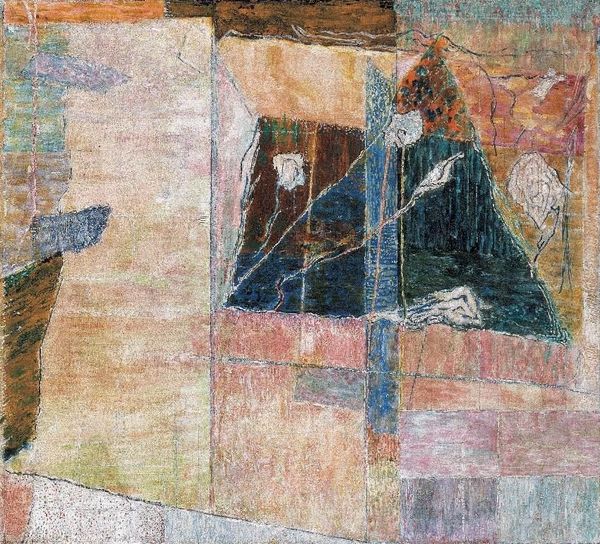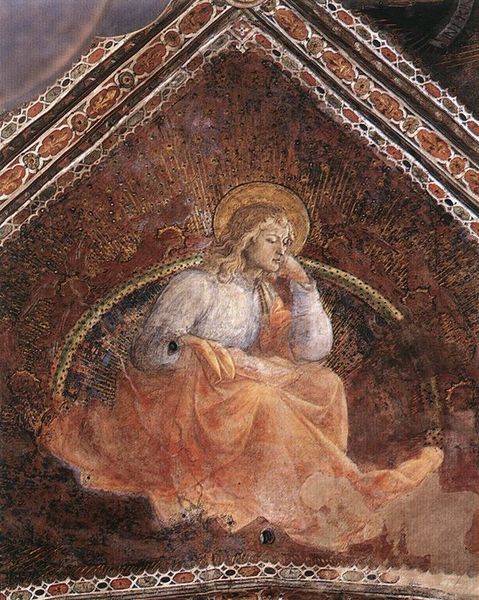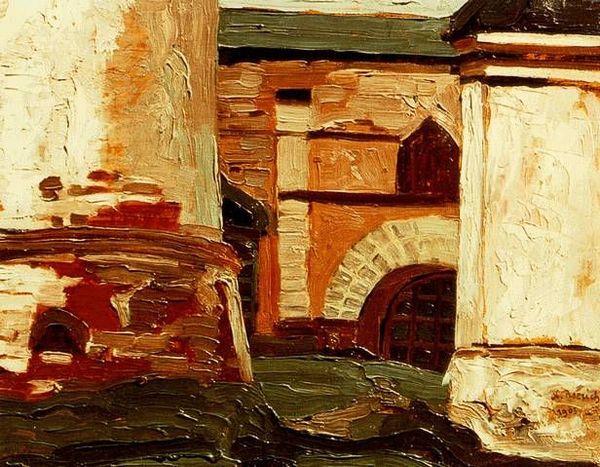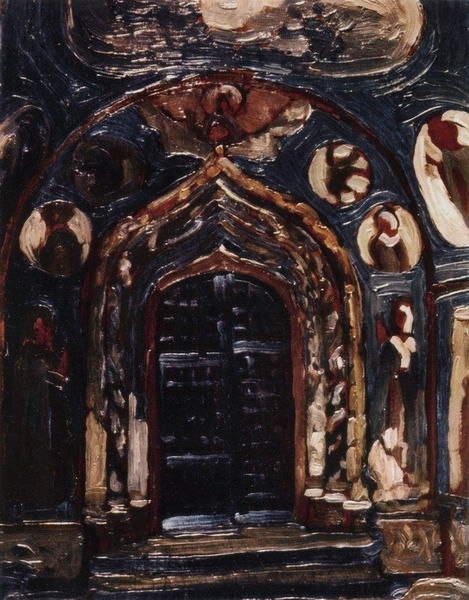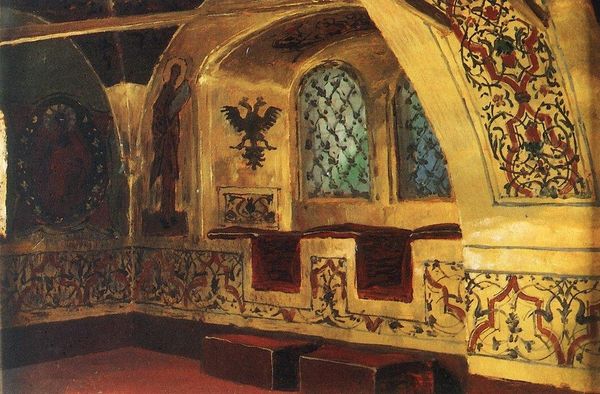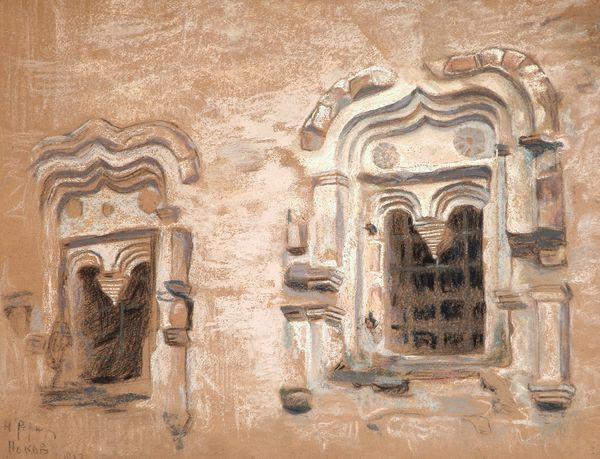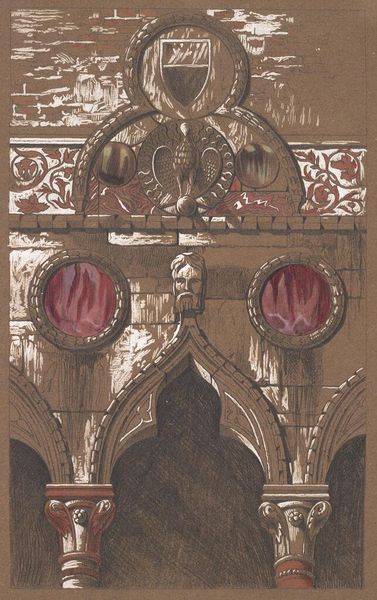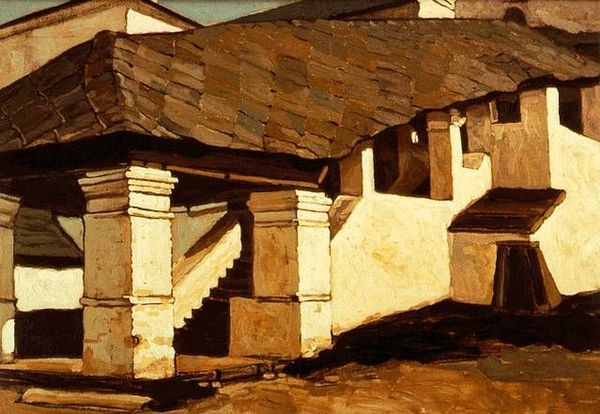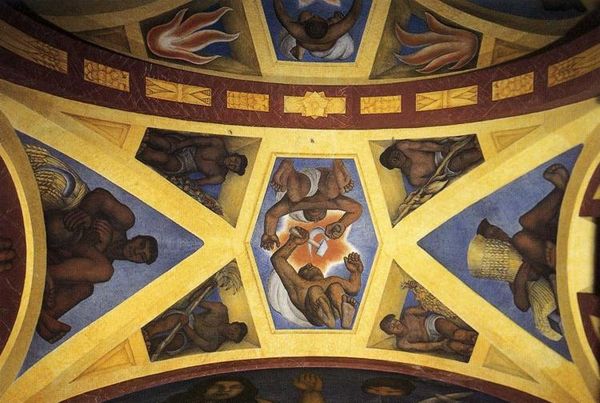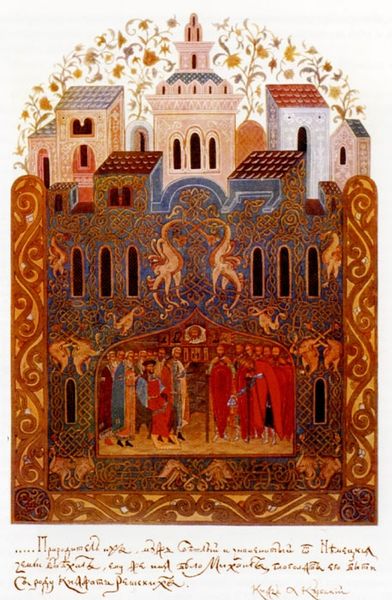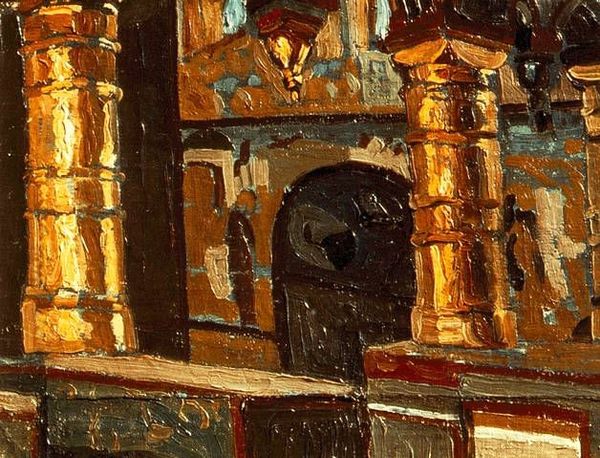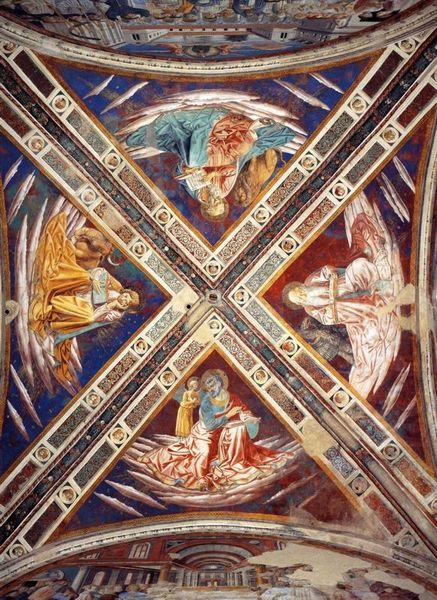
Yaroslavl. Entrance to the St. Nicholas Wet Church. 1903
0:00
0:00
nicholasroerich
State Museum of Oriental Art, Moscow, Russia
painting, oil-paint
#
urban landscape
#
medieval
#
painting
#
street view
#
oil-paint
#
landscape
#
holy-places
#
urban cityscape
#
city scape
#
russian-avant-garde
#
cityscape
#
historical building
Dimensions: 31.7 x 40.7 cm
Copyright: Public domain
Editor: So, this is Nicholas Roerich's "Yaroslavl. Entrance to the St. Nicholas Wet Church," painted in 1903 using oil on canvas. It’s currently housed at the State Museum of Oriental Art in Moscow. I'm really struck by the almost dreamlike quality. It feels very textured and kind of… heavy. What catches your eye in this piece? Curator: What grabs me are the symbols deeply embedded within the architectural details. Notice the iconographic imagery above the entrance – it's not merely decorative. What narratives do you think such a placement intends to evoke in those who pass beneath it? Editor: That's interesting; I hadn’t really considered it as communicating a specific message. It’s more like an assertion of faith? Curator: Precisely! Roerich is invoking centuries of cultural memory. The church becomes a visual text, a reminder of spiritual continuity. Do you see how the weighty, textured brushstrokes amplify the sense of history, of layers built upon layers, both physically and symbolically? Editor: Yeah, now I see that the roughness sort of enhances the building's history; it’s not just a pretty facade. Curator: It becomes a palpable history, almost a physical manifestation of faith and time. Roerich is not just painting a building but invoking a whole cultural landscape. What might the choice of such a specific, slightly obscured entrance signify, versus a grand, open façade? Editor: Perhaps that entry is only available to a select few? Or it evokes a deeper connection with cultural roots? Curator: Exactly! And remember, this was painted during a time of great social and political change in Russia. So these depictions might not only remind, but also resist. Editor: I’ve certainly never looked at an entrance quite like this before. There is such a depth to cultural significance. Curator: And that, my friend, is where the power of symbols resides: shaping how we see and understand the world.
Comments
No comments
Be the first to comment and join the conversation on the ultimate creative platform.
